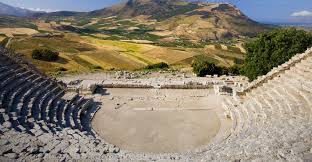I have enjoyed very much dipping in and out of Mark Forsyth’s (of The Inky Fool) excellent book “The Horologicon” if you have an interest in obscure and dead terms I advise you to pick up a copy. Over the course of this week it has taught me many new and I must say fascinating words, which although I may not drop into normal conversations it is a pleasure to learn something new. I also have one class of students who like it when I give them three unusual words each week, this book has been kind enough to furnish me with several of them.
As I was cooking a nice piece of salmon this week it massively splattered oil over my trousers as I turned it over, leaving a rather unsightly grease stain just above the knee, which in spite of several washing attempts it stubbornly refused to be removed, it just wouldn’t wash away. It was unwashawayable or to take a term from page 26 of this book, it was illutible. It is really surprising that more words exist to cover situations than perhaps we even knew existed.




 .
.